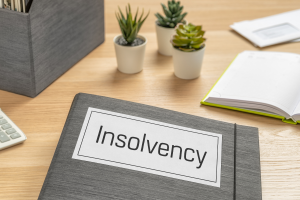Author: Stan Coltman
Any business can have a financial problem and no business is immune from the impact of recession and to think otherwise is both short sighted and naïve.
Those businesses that will survive need a route map (aka a business plan) to know where they are and where they are going. By knowing the journey your business is going to take, you can plan for pit stops to refuel your corporate vehicle (cash flow), change the tyres for any treacherous roads ahead and have the necessary service and diagnostic checks (management accounts) to ensure that any potential problems are nipped in the bud before it becomes a major overhaul (review costs, overheads together with reviewing aged creditors and debtors).
To keep your corporate vehicle on the road, the driver (managing director) needs to have a clear idea of the problems they may face and have a plan devised to deal with them.
Thinking the unthinkable might just be the difference between keeping your corporate vehicle on the road or ending up on the side of the road waiting for a recovery vehicle to patch you up. Or, worse still, being advised that the corporate vehicle needs to go to the scrap heap, with you being left with the scrappage costs and nothing to drive off in.
Where the management takes early action, they have a far better chance of saving their business. Those that ignore the oil warning light on the dashboard or worse still the road sign reading ‘Danger Cliff Ahead’, can only blame themselves for ignoring.
Sadly, too many businesses fail because the directors think it will never happen to them. By understanding the symptoms and engaging an accountant or a licensed insolvency practitioner at an early enough stage, many more businesses would find themselves back on the road to recovery, as opposed to the corporate scrap heap.
Whilst I hope you enjoyed my driving analogy (brought on as a direct result of a visit to my car dealership for my cars annual service), directors need to keep themselves up to speed with their duties and responsibilities. In the announcements made last week by the Chancellor, one matter that stood out for me was the exposure directors could be facing following no further extension to the suspension of the wrongful trading provisions (the risk of personal liability for certain of a company’s liabilities for directors of companies which enter insolvent liquidation). The previous suspension was in place from 1 April 2020 until 30 September 2020 and it was widely expected that this suspension would be extended for a further period. However, this is not the case and therefore from 1st October 2020, directors will once again be at risk for a claim for wrongful trading, if they allow a company to continue trading past the point that there was no longer a reasonable prospect of avoiding insolvent liquidation.
With further lockdown restrictions being introduced, it will be very difficult for directors, particularly in certain sectors, to have certainty that their company can continue to trade and pass the “reasonable prospect” test, without taking great care and with appropriate professional advice.
If you have a client who has ongoing concerns for their business and the implications of the removal of the suspension, then please do not hesitate to contact My Insolvency to discuss further as we would be please to assist.









